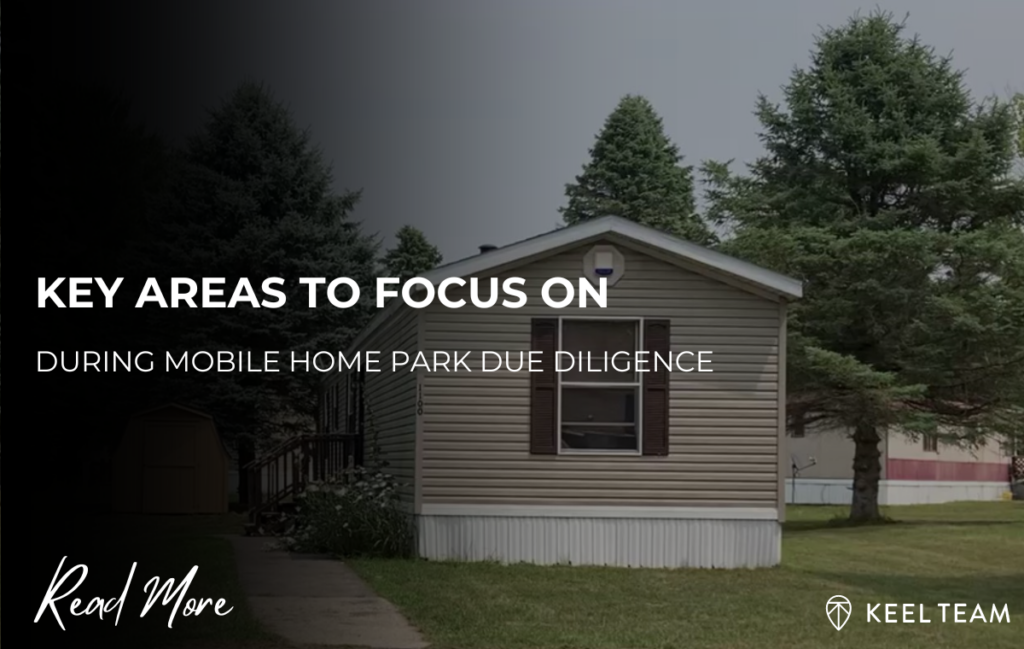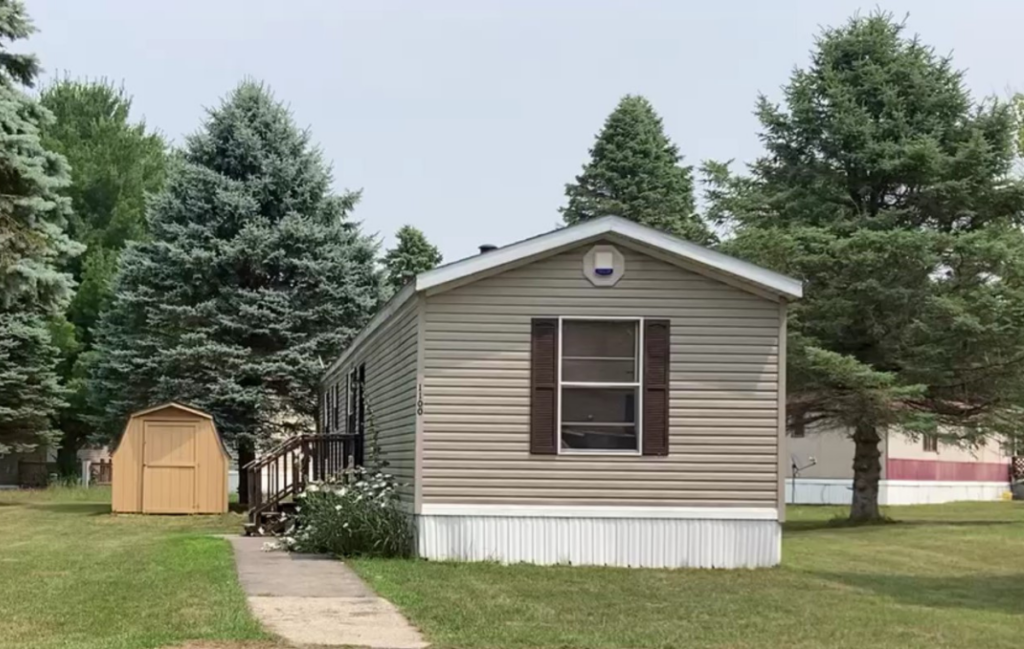Key Areas to Focus on During Mobile Home Park Due Diligence
-
 Tristan Hunter - Investor Relations
Tristan Hunter - Investor Relations

Investing in mobile home parks often offers substantial opportunities due to the rising demand for affordable housing. However, the success of such an investment closely ties to the thoroughness of your due diligence process. By carefully examining several critical areas, you can potentially better position yourself to make informed decisions, mitigate risks, and maximize the value of your investment.
Assessing Utilities: A Core Component
Utilities play a fundamental role in operating any mobile home park. How you manage these utilities can significantly influence your operational costs and overall profitability. During due diligence, it’s crucial to determine whether tenants or the mobile home park owner cover utility costs like electricity, water, sewer, and gas. Master-metered utilities mean the owner pays the bills and may pass these costs to tenants, which allows for more control but can lead to higher overhead. Direct billing shifts the financial responsibility directly to tenants, reducing the owner’s burden and encouraging conservation.
Understanding the water and sewer systems is equally important. Public systems usually offer greater reliability, while private alternatives like treatment plants or septic systems may require more maintenance and are deemed more risky. If sewer pipes are made of older materials like cast iron or Orangeburg, you might face future repair or replacement costs. During on-site inspections, look for green grass patches, which often signal water leaks, and review water bills for signs of excessive usage.
Identifying Deferred Maintenance: Spotting Hidden Costs
Deferred maintenance refers to postponed repairs that could lead to larger issues and expenses later. When examining the property, closely inspect infrastructure such as roads, trees, electrical systems, and water lines. Well-maintained roads are vital for the appeal and functionality of the mobile home park. Signs of wear, like cracks or drainage problems, could indicate the need for costly repairs. Trees that are overgrown or in poor health can pose safety risks, especially during storms. Electrical and water systems that are outdated or poorly maintained can cause service interruptions or safety hazards, adding to your maintenance costs down the line.
Evaluating Location: Understanding Market Potential
The location of the mobile home park significantly affects its desirability, rental rates, and investment potential. Research whether the area is experiencing growth or decline. Growing areas typically present better opportunities, as increased demand for affordable housing can drive higher occupancy rates and potentially lead to property value appreciation.
Assess the neighborhood’s quality, including the part of town where the park is located. Properties in desirable areas tend to attract more tenants and maintain higher occupancy rates. Consider the reputation of the local school district, as mobile home parks in highly-rated districts often appeal more to families. Comparing the average rent for a two-bedroom apartment and the median home price in the area gives valuable context. If local rents and home prices are significantly higher, the mobile home park may offer a competitive housing option, increasing demand and occupancy rates.
Are you looking for more information on mobile home park investing and due diligence? Download our FREE eBook and learn expert tips from Andrew Keel!

Assessing Rental Demand: Gauging Market Interest
Understanding rental demand within the mobile home park is essential before finalizing your investment. One effective strategy is to advertise available homes to gauge local interest through a test ad. This approach could provide valuable insights into market demand, helping you make a more informed decision.
Evaluating the Condition of Homes: Assessing Key Assets
The condition of homes within the mobile home park is another crucial aspect of due diligence. Determine how many homes are park-owned versus those owned by tenants, as this impacts your income and maintenance responsibilities. Park-owned homes typically generate additional rental income but come with the responsibility for maintenance and higher potential vacancies. Evaluating the age and condition of these homes is essential, as older homes may require significant repairs or upgrades to remain attractive to tenants.
Verifying Regulatory Compliance: Ensuring Legal Standing
Ensuring the mobile home park complies with local regulations is crucial to avoiding legal issues. During due diligence, verify that the property’s operating license is current and that the property meets all local regulations. Check for any outstanding violations or fines, as operating without a valid license or failing to address violations could lead to significant legal and financial repercussions.
Conclusion: Informed Decision-Making for Mobile Home Park Investments
Thorough due diligence is critical when investing in a mobile home park. By carefully evaluating utilities, deferred maintenance, location, rental demand, the condition of homes, and regulatory compliance, you can likely gain a comprehensive understanding of the potential risks and rewards associated with the investment. Each of these areas plays a significant role in the overall potential success of the mobile home park, and understanding them can help you make informed decisions that align with your investment goals. Working closely with experienced professionals and conducting in-depth research can further enhance your ability to identify opportunities and avoid pitfalls in the mobile home park asset class.
Learn more about mobile home park investing.
Interested in learning more about mobile home park investing? Get in touch with us today to find out more.
Disclaimer:
The information provided is for informational purposes only and is not investment advice or a guarantee of any kind. We do not guarantee profitability. Make investment decisions based on your own research and consult registered financial and legal professionals. We are not registered financial or legal professionals and do not provide personalized investment recommendations.

Tristan Hunter - Investor Relations
View The Previous or Next Post
Subscribe Below 👇





